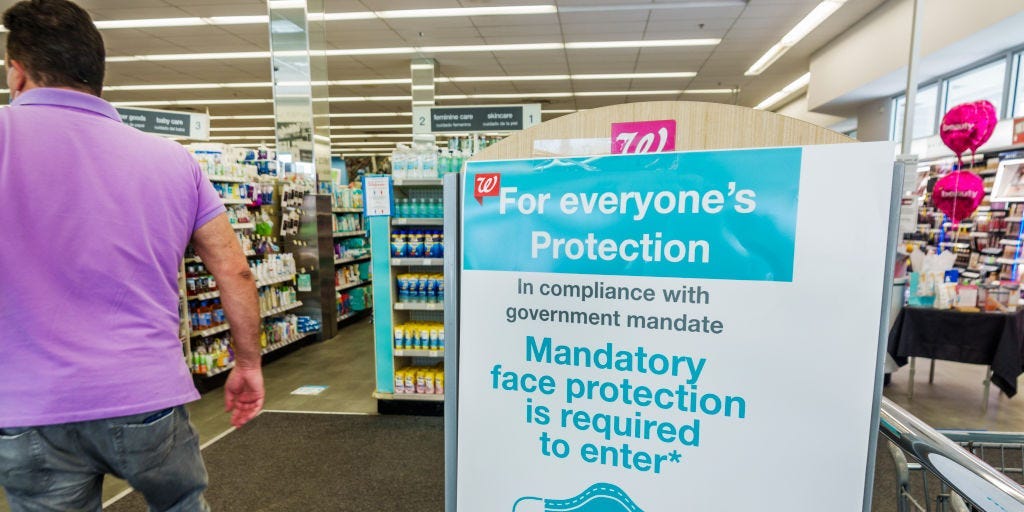
- NIH Director Francis Collins confirmed new mask rules are primarily about protecting the unvaccinated.
- New guidance for fully vaccinated people in some places to wear masks has sparked confusion.
- For those in high-risk communities, "it is prudent to put on a mask even if you're vaccinated," Collins told CNN.
- See more stories on Insider's business page.
The Director of the National Institutes of Health, Dr. Francis Collins, acknowledged that new COVID-19 restrictions are primarily about protecting unvaccinated Americans as cases of the Delta variant rise nationwide.
Two months after recommending that fully vaccinated people don't need face coverings indoors, the Centers for Disease Control recommended that even fully vaccinated Americans wear masks indoors in areas with "substantial" COVID-19 spread.
Numerous have jurisdictions followed suit by going beyond the CDC's recommendations and reimposing indoor mask mandates in businesses. The new guidelines, however, have caused confusion and some frustration among Americans who are fully vaccinated.
"It's mostly about protecting the unvaccinated, that's where the real serious risks of illness are. If you're vaccinated right now, your likelihood of getting sick is 25-fold reduced. The vaccines work extremely well," Collins told CNN's Jake Tapper on Sunday morning of the new restrictions.
"But the new news, and much of it comes out of the outbreak in Barnstable County, Massachusetts, is that vaccinated people are capable of getting the virus in their nose and throat," Collins said, "and they seem to have high enough levels of virus that they might be contagious."
"And hence the reasons that if you're in a community where this virus is spreading, which is about 75% of counties right now, it is prudent to put on a mask even if you're vaccinated, just in case you might be one of those people who is currently spreading it," Collins added.
-The Recount (@therecount) August 1, 2021
COVID-19 cases have spiked by 148%, hospitalizations are up by 73%, and COVID-19 deaths are up by 13% over the past 14 days, according to The New York Times, primarily driven by the spread of the Delta variant.
As of Sunday, 67.3% of Americans over the age of 12 who are eligible for the vaccine have received at least one dose. But the current Delta-driven surge of COVID is hitting states with lower vaccination rates the hardest. Louisiana, Florida, Arkansas, and Mississippi are currently reporting the highest numbers of COVID-19 cases per 100,000 people, according to The Times' data.
